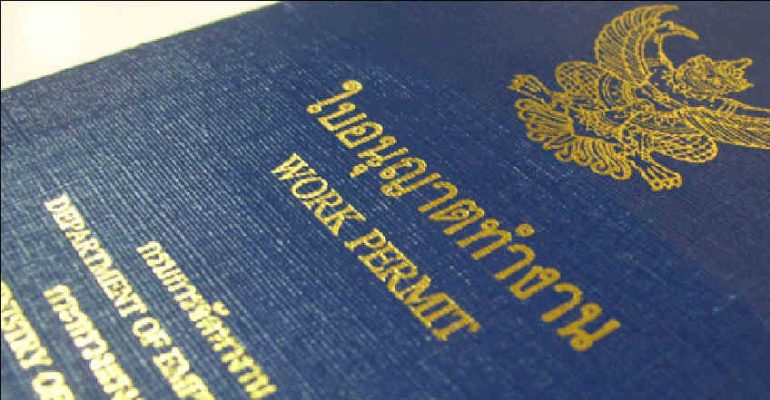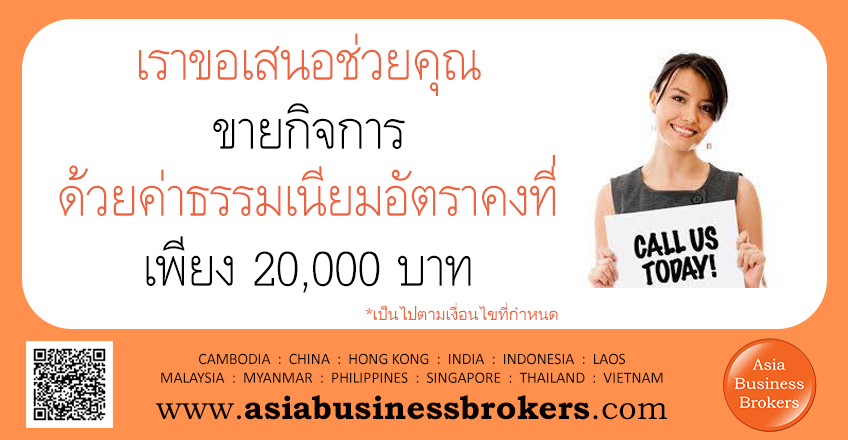
Foreigners Living and Working in Thailand – VISA and Work Permit
At Asian Business Brokers, we receive numerous enquiries from those overseas wanting to know more about working and living in Thailand.
SB Law Asia is a specialist commercial law firm in central Bangkok.
This article has been prepared by Asian Business Brokers and SB Law Asia to answer those questions about living and working in Thailand.
This is a guide to the issues. Regrettably, there is no “One size fits all” answer available to all these questions. The law differentiates amongst the different nationalities of foreigners involved, as well as the amount to be invested. However, it will provide a good deal of useful information.
Stay in Thailand Options
- VISA Free Entry
-
- The citizens of some 55 countries will be granted a visa on arrival. In fact, although it is known as a visa on arrival, it is more properly called a ‘Visa Exemption.’ These allow a stay of up to 30 days. Visitors from Korea, Brazil, Peru, Argentina and Chile will be granted up to 90 days. Most holidaymakers from the US, Europe and the UK will be granted a 30 day exemption when they arrive on holiday.
Visitors who want to stay longer can extend their stay by 30 days by obtaining an extension from the Immigration Department in Thailand at a cost of THB 1,900. Those visitors from India may only extend for 7 days.
Visitors who want to stay longer usually visit a neighbouring Asian country; they will be granted a further ‘Visa Exempt’ entry upon their return. The process can be repeated up to 3 times, after which Immigration will refuse entry. It is not clear if the limit is 3 times each year or 3 times in all. There have been differing reports. It is safe only to rely on 3 such entries.
-
- Tourist Visa
-
- Your home country, or neighbouring Asian countries, will grant ‘Tourist Visas.’ These typically last for 60 days and can be extended for a further 30 days. They can be obtained multiple times, but after about 5 or 6 such visas, Immigration will ask you why you are spending so much time here. They will also ask how you fund yourself. Their concern is that you are working here illegally.
A Tourist Visa from your home country can last longer.
-
- Education VISA
- This is exactly what it sounds like; many educational establishments are licensed by the government to provide courses which qualify for this visa. The most common course is Thai language. This visa was much abused in the past; nowadays, the schools are regularly inspected, students must actually attend and can be examined by Immigration authorities to see if they’re learning anything. These visas are granted for 12 month periods.
- Business VISA
-
- The Non-O B Visa, the business visa, is the most commonly held visa for those working in Thailand. It can only be issued to an employee of a company, although it can be a company in which the employee is a shareholder or director. This visa is initially granted for 90 days and then, subject to compliance with the requirements, is extended for 12 months at a time.
It provides the right to stay in Thailand but not to work. It usually goes hand in hand with a Work Permit (see below).
-
- Investment Visa
-
- This class of Visa was introduced in 2014 and caters for those too young for a Retirement Visa and who are not seeking a job. It requires an investment of 10 million Baht, brought from overseas, which must be invested in one or more of the following categories:
Purchase of a condominium
Invest funds in a fixed term deposit account with a Thai bank
Purchase State Enterprise or Government Bonds
The necessary investment can be in one or more of these three categories provided the total amounts to the required 10 million Baht. It is necessary to show a permanent address in Thailand, such as a rented property and the applicant must have a Non-O Visa as a pre-requisite.
The Visa lasts for one year and is renewable for as long as the conditions are met.
-
- Retirement VISA
-
- A Retirement Visa is available to anyone over the age of 50 who can show a deposit of THB 800,000 in a Thai bank account (for the previous 2 months) or an income of THB 65,000 per month, or a combination of both.
It is possible to obtain a Work Permit with a Retirement Visa, although it may be difficult to obtain a Work Permit if applying whilst on an extension of a Retirement Visa. The rules are somewhat technical, but, in principle, it is achievable.
-
- Elite Visa
- This Visa is convenient, but expensive. It is a simple application; it costs THB 500,000 for a 5 year Visa and THB 1,000,000 for a 20 year Visa. The Elite Visa will support a Work Permit and it carries peripheral benefits.
- Medical Retirement Visa
- This is a long term Retirement Visa which will be introduced in 2018. It is proposed that it will last 10 years, but full details are not yet known and the requirements and terms may well change before it is introduced.
Work Permits
Work is widely defined in Thai law. It is “Engaging in mental or physical effort, paid or unpaid.” Which covers pretty much everything.
In order to work in Thailand, a foreigner must have a valid Non-O VISA AND a Work Permit. A Work Permit is issued for up to 12 months and may be renewed for additional 12-month periods. If an application is made by a company, it can be the company in which you are a minority shareholder and/or a director.
Work Permits are non-transferable. Many small businesses in Thailand, especially bars, are not run by registered companies and the ‘Business Owner’ will therefore not have a Work Permit. Some have been trading for many years, the ‘Owners’ running the risk of deportation. Often, a Thai national will appear as the owner/manager. Remember, if you want security, you will have to register a company and obtain a Work Permit.
Additional Information
SB Law Asia specializes in company formations and work permits. Please feel free to contact us for more specific advice. You may care to read Common Business Structures for assistance with understanding how to conduct business in Thailand.
 p;
p;
21st June 2017





